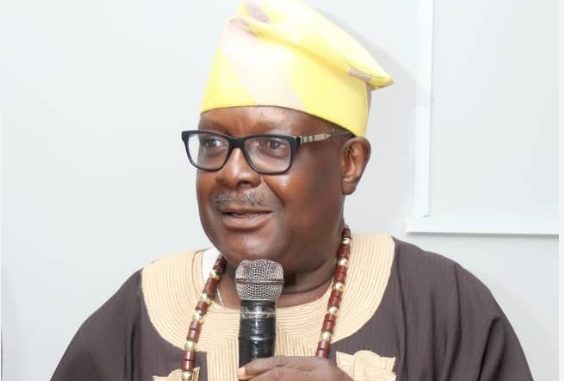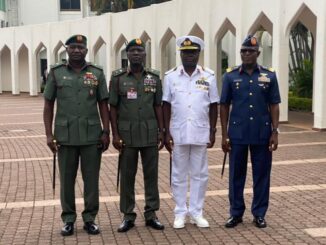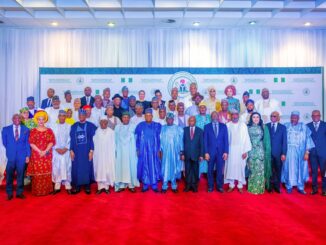
June 28, 2025
In a revelation laced with emotion and memory, a frontline figure of the June 12 struggle, Jumoke Ogunkeyede, has recalled a deeply personal moment when Bola Ahmed Tinubu, now Nigeria’s president, broke down in tears in the United States, overwhelmed by the disunity among pro-democracy groups fighting against military tyranny.
It was a private gathering, long before power and presidency were within Tinubu’s reach. The air was heavy, not just with the weight of exile and danger, but with frustration.
“We had just finished lunch with Chief Anthony Enahoro in Alexandria,” Ogunkeyede recalled during an appearance on Inside Sources with Laolu Akande on Channels Television.
“Then Tinubu, almost in tears, looked around and said, ‘Look at where we’ve found ourselves… this must be a struggle that must be completed.’”
Ogunkeyede, a former United States-based NADECO official and Chairman of the United Committee to Save Nigeria (formed in New York after the annulment of the June 12, 1993, election), who has now relocated back to Nigeria, said the now-president didn’t just talk the talk, he acted.
“Tinubu came to me in New York and introduced me to the world,” he said. “God gave him the grace to bring all the warring, disagreeing parties together. He worked his heart out.”
Then came the most human moment: “Well, I hope the President will forgive me for saying this,” he said, pausing. “I saw him. He started to cry. He was wearing a light brown suit. He said, ‘We are doing all this for a nation, and you guys are still quarreling among yourselves. Why don’t we forget our differences and unify, so we can have a Nigeria of our dreams?’”
ALSO READ: 32 years after: June 12, MKO Abiola, and the democracy that died in custody
Ogunkeyede’s vivid account starkly counters a recent claim by a former Jigawa State governor, who accused Tinubu of backing the annulment of the June 12 election while serving as the Lagos West senatorial candidate of the SDP.
“I’m sorry to say, he must have been drinking something,” Ogunkeyede fired back. “Tinubu stood up for justice.”
He insisted others present in New York could verify the moment. “They’ll attest to what I just said,” he noted. “And we’re grateful that Tinubu is now president. He gave so much to ensure Nigeria did not go to ruins.”
Reflecting on the larger picture, Ogunkeyede said: “Collaboratively, we made sure Abacha’s hands did not prevail. By God’s grace, I’m glad to still be alive and part of this continuing struggle. The democracy we’re enjoying today, people wondered if Nigeria would even survive.”
But the scars of the battle remain. He expressed disappointment over the omission of key figures from the June 12 honour list read by Tinubu.
“Those of us who carried on fighting for this nation should not have been forgotten,” he said. “Not just me, many others.
A few of us truly put our lives on the line. My house was firebombed on June 15, 1996. We were to start a vigil for Kudirat on the 17th.
I had only a shirt. I couldn’t sleep in my home. But we did all we could, even though many of us were outside Nigeria.”
He stressed the need for inclusivity in the story of June 12. “This struggle shouldn’t be monopolised. Tinubu cannot remember everyone, but some of us played very significant roles.”
Ogunkeyede also recalled a sharp exchange with Alhaji Baba Gana Kingibe in the US: “I told him: Chief Abiola made you Vice President, and now you’re reducing yourself to a second fiddle. Why would you defend Abacha and suggest we beg him to release Abiola?”
The veteran activist closed his reflections with a sense of fulfilment: “For several nights and months, I never slept in my home. But Chief Enahoro taught me how to sustain a struggle.
I’m not a young man anymore. But I’m joyful that the struggle was consummated, that we got results, and that President Tinubu, who gave so much, is now at the helm. I’m confident this ship of state will land in glorious places.”
Ogunkeyede’s testimony is more than a memory; it is a lens into the raw emotion, sacrifice, and resilience that defined the June 12 movement, and the man now steering the Nigerian nation.




